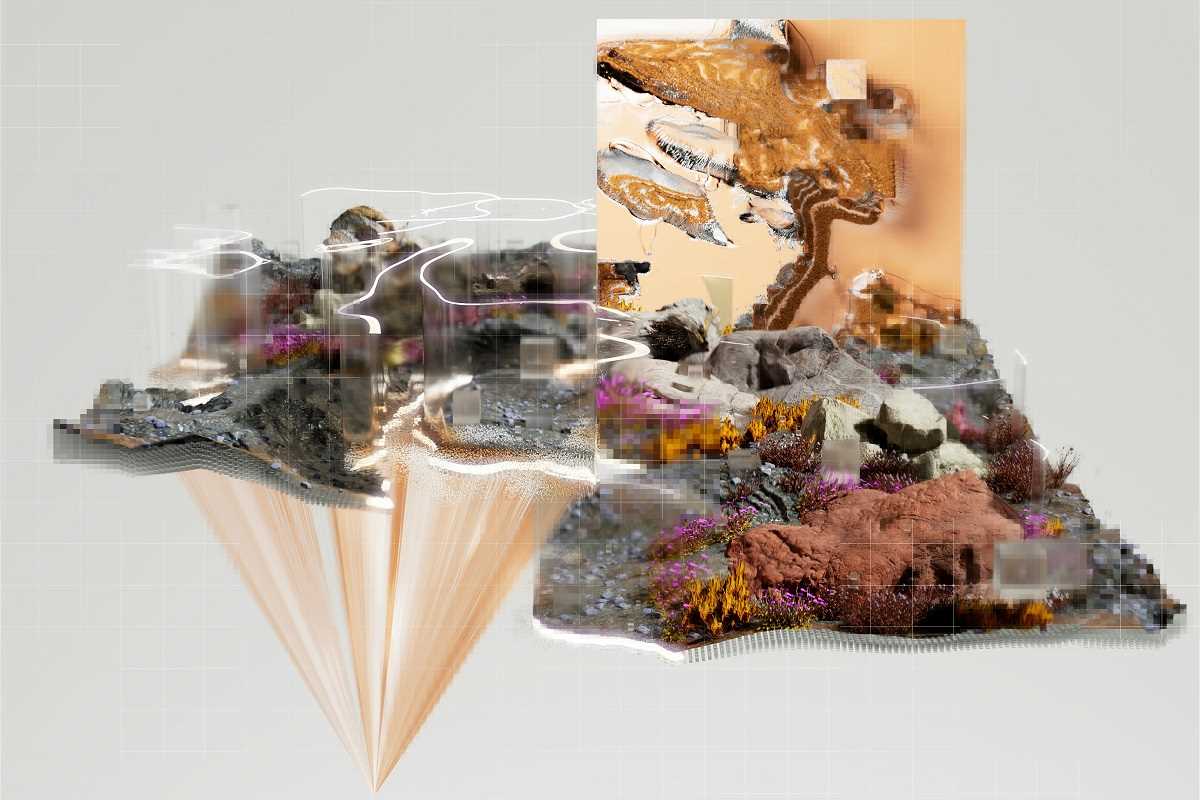If you’ve been paying attention to recent trends, you’re probably hearing the word "nanotechnology" more often. This cutting-edge field focuses on manipulating matter at an atomic or molecular level, unlocking countless possibilities across industries. But what exactly is nanotechnology, and how is it shaping the future of career opportunities in various sectors like healthcare, energy, electronics, and even environmental science? From creating more efficient drug delivery systems to developing stronger, lighter materials, nanotechnology is paving the way for groundbreaking innovations. Let’s break it down and explore how this exciting field is transforming industries and opening new doors for professionals.
What Is Nanotechnology?
At its core, nanotechnology is all about manipulating materials at an incredibly small scale. We’re talking nanoscale tiny—as in one-billionth of a meter. To put that into perspective, a sheet of paper is around 100,000 nanometers thick. Scientists who work within this mind-bogglingly small dimension manipulate materials atom by atom to create entirely new properties or functions.
Imagine everyday substances like steel or plastic transformed into materials that are lighter, stronger, or more durable. Or consider medicines so precise that they can deliver treatments directly to individual cells in your body, bypassing healthy ones. The ability to engineer at the atomic level gives nanotechnology the power to revolutionize entire industries.
Why Is Nanotechnology a Big Deal?
Nanotechnology isn’t just a trendy buzzword; it’s a major scientific leap with real-world applications. By tweaking materials and structures at the smallest level, nanotechnology unlocks possibilities that seemed unthinkable just a few decades ago.
Some groundbreaking applications include:
- Creating super-strong materials: Carbon nanomaterials like graphene are 200 times stronger than steel yet as light as paper.
- Improving healthcare delivery: Nanotechnology enables medicines to target diseases with extreme precision. For example, nanocarriers can transport chemotherapy drugs directly to tumor cells, greatly reducing harmful side effects.
- Advancing energy solutions: Nanotech is improving energy storage and production with innovations like more efficient solar panels and better battery materials.
- Addressing environmental challenges: Nanomaterials can filter water at microscopic levels and neutralize pollutants, making them instrumental in sustainable development.
This ongoing innovation means nanotechnology is not confined to labs alone; its effects are already visible in our daily lives. Whether it’s medicine, energy, or manufacturing, nanotechnology is helping tackle global challenges while paving the way for breakthroughs we haven’t even imagined yet.
Careers in Nanotechnology
As the field of nanotechnology grows, an exciting variety of specialized job roles are emerging. These opportunities span industries like medicine, environmental science, aerospace, electronics, and beyond. Specialized training and an interdisciplinary approach are key for these careers, as nanotech often integrates physics, biology, chemistry, and engineering.
1. Careers in Medicine
Nanotechnology is leading a healthcare revolution. By enabling microscopic interventions, it’s transforming how we diagnose and treat diseases. The ability to work at such a precise level allows innovations that were previously the stuff of science fiction.
Here are some exciting career paths within medical nanotechnology:
- Nano-Pharmaceutical Researchers: These scientists focus on developing new drug delivery systems using nanoparticles. For example, lipid nanoparticles have been instrumental in creating mRNA vaccine platforms, like those used in COVID-19 vaccines.
- Biomedical Engineers: They design cutting-edge medical tools and devices, such as smart implants or nanosensors that detect health issues in real time. Imagine a tiny heart monitor that provides meticulous data directly from inside the body.
- Medical Imaging Experts: Improved imaging techniques are another area where nanotech shines. By integrating nanoparticles into imaging agents, these professionals create clearer MRIs, ultrasounds, and CT scans, making early diagnosis easier and more accurate.
The medical industry also predicts the rise of nano-robotics in surgery. Tiny nanobots capable of swimming through bloodstreams to repair tissues or destroy pathogens are no longer in the distant future. Professionals who can design and control these innovations will be in high demand.
Gene editing, too, may benefit from nanotechnology. Engineers are exploring how to use nanoparticles to deliver safer, more effective CRISPR gene-editing payloads to cells. This convergence of biology, nanotech, and data science promises to unlock new career horizons in genetic medicine.
2. Careers in Industry
Nanotechnology’s impact on industry is massive, influencing sectors like aerospace, energy, electronics, and even fashion. While many breakthroughs are still being refined in research labs, others are already driving tangible change in manufacturing, product design, and environmental science.
Examples of industrial careers in nanotechnology include:
- Materials Scientists: These specialists design advanced materials that power everything from flexible phone screens to ultra-durable sports equipment. For example, carbon nanotube composites are being used to create lighter and stronger components for airplanes.
- Nanomanufacturing Engineers: These engineers oversee the production of nanoscale products, ensuring manufacturing techniques remain efficient and scalable. Semi-conductor companies, for instance, depend on processors and chips etched with nanometer precision.
- Energy Specialists: Innovations like nanostructured batteries promise faster charging and longer-lasting renewable energy storage. Nanotech is also making biofuels and hydrogen energy more practical and affordable, which means exciting opportunities for scientists working in clean energy research.
- Environmental Scientists: Nanomaterials are being deployed to clean up oil spills or purify drinking water on a large scale. Researchers are exploring nano catalytic converters capable of converting greenhouse gases into non-toxic substances.
Even industries like sports and consumer goods are touched by nanotechnology. Nano-enhanced textiles are being used to make clothing lighter, water-repellent, and more breathable. Lighter bicycles, tennis rackets, and protective helmets are already available thanks to materials created through nanotechnology.
What Skills Do You Need for a Career in Nanotechnology?
Given the interdisciplinary nature of nanotechnology, there is no one-size-fits-all skillset. However, some core abilities are essential for excelling in this field, regardless of which career path you choose.
- Foundational Science Knowledge: A strong grounding in physics, chemistry, and biology is critical. These disciplines form the bedrock for understanding how atoms and molecules behave at the nanoscale.
- Engineering Expertise: Engineers skilled in materials science, manufacturing, or biomedical engineering will find that their knowledge is particularly applicable to nanotechnological applications.
- Problem-Solving Skills: The challenges nanotechnology aims to solve are often complex and require creative solutions.
- Adaptability and Lifelong Learning: Nanotechnology is rapidly advancing, so keeping up with innovations is critical. Continued education through certifications, workshops, and keeping pace with scientific literature will give you an edge in this field.
Soft skills matter, too. Critical thinking and the ability to collaborate effectively with interdisciplinary teams can be as important as technical expertise in solving real-world problems.
Why Now Is a Great Time to Get Into Nanotechnology
If you’re considering a career in nanotechnology, there’s no better time to jump in. The global nanotech market is expanding rapidly, with studies estimating its worth to exceed $300 billion by 2030.
Here’s why this is an exciting moment for nanotechnology enthusiasts:
- Growing Demand for Skilled Workers: Funding in research and development is increasing, both in the public and private sectors. Universities are offering specialized nanotechnology degrees, and startups in this field are thriving.
- Need for Global Solutions: Issues like climate change, pandemic responses, and clean energy are creating urgent demand for innovative nanotechnological solutions.
- Technological Convergence: Nanotechnology is blending with artificial intelligence, machine learning, and robotics to spark a new wave of innovation. For instance, smart systems powered by nanotechnology promise to revolutionize healthcare monitoring and autonomous vehicles.
The diverse applications of nanotechnology mean that job opportunities won’t be limited to a single sector. Whether you’re drawn to medicine, industrial design, or environmental science, you’re likely to find a career path that focuses on innovation, creativity, and solving global challenges.
What’s Next for Nanotechnology?
While nanotechnology is already delivering incredible results, its potential is still largely untapped. Here’s a glimpse of where the field might be heading:
- Personalized Medicine: Nanotechnology could enable individualized treatment plans based on a patient’s genetic makeup, lifestyle, and physiological data.
- Smarter, Sustainable Industries: Imagine factories where nanoscale sensors monitor and optimize processes to cut waste and enhance energy efficiency.
- Global Sustainability Efforts: Nano-designed solutions could remake agriculture, helping plants grow more efficiently or improving soil health. Even desalination and water purification systems could be exponentially improved with nanotechnology interventions.
The overarching theme of nanotechnology’s future is its versatility. Whether you dream of designing revolutionary materials or creating ultra-precise tools for surgeons, nanotechnology offers endless possibilities.
 (Image via
(Image via





